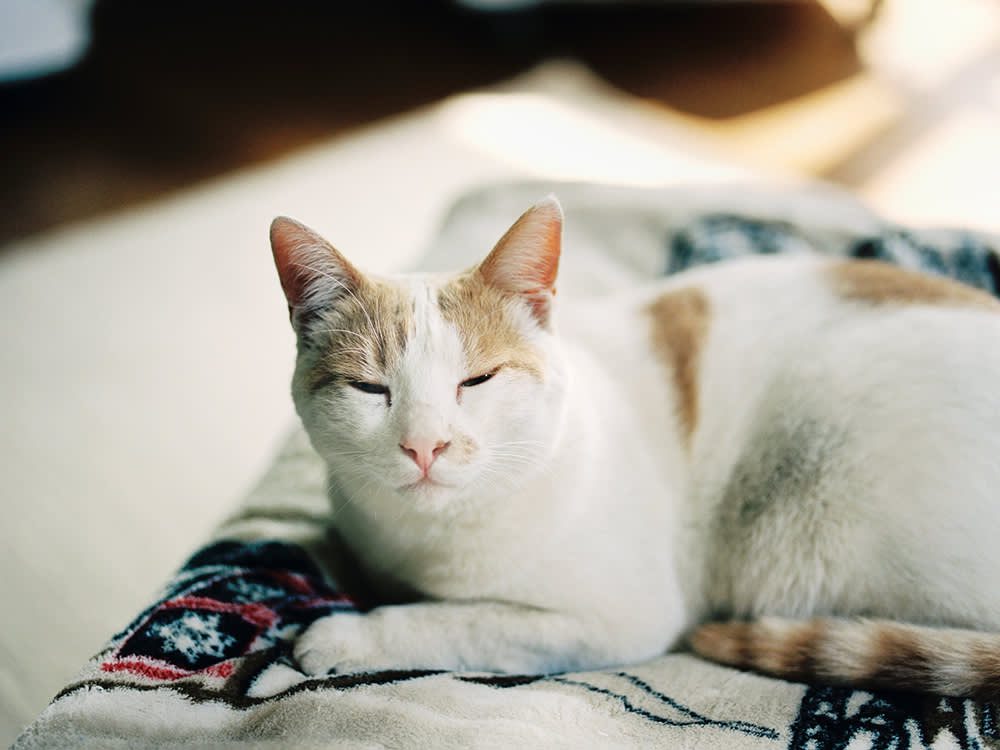In this article, we will explore the captivating world of domestic cats – those adorable companions that bring joy and comfort to millions of households worldwide. By understanding what exactly a domestic cat is, you'll gain valuable insights into their behaviors and needs, allowing you to forge an even deeper bond with your feline friend.
Key Takeaways:
- A domestic cat is a house pet that has been bred over generations for companionship and is not found in the wild.
- Domestic cats have a wide range of coat colors, patterns, and eye colors due to selective breeding.
- Cats are known for their agility, flexibility, and ability to land on their feet due to their unique skeletal structure.
- Domestic cats are highly territorial animals and mark their territory by scratching objects or spraying urine.
- Cats have excellent night vision and can see in almost total darkness, which makes them effective hunters.
What is a domestic cat?
A domestic cat, also known as Felis catus, is a small carnivorous mammal that has been selectively bred for thousands of years to live with humans as pets. They are one of the most popular pets in the world and can be found in many households. Domestic cats come in various breeds, each with its own unique characteristics and appearances.
Different Breeds of Domestic Cats
There are many different breeds of domestic cats, each with its own distinct features. Some popular breeds include:
- Persian: Known for their long fur and sweet temperament.
- Maine Coon: One of the largest domestic cat breeds, known for their friendly nature.
- Siamese: Recognized by their striking blue eyes and sleek coat.
- Bengal: Known for their beautiful spotted or marbled coat that resembles a leopard.
Physical Characteristics
Domestic cats have sharp retractable claws, excellent night vision, and a strong sense of hearing. They have flexible bodies that allow them to squeeze through tight spaces and are skilled climbers. Their whiskers help them navigate in the dark and detect objects around them.
The differences between domestic and wild cats
While domestic cats share many similarities with their wild relatives, there are some key differences between the two.
Behavioral Differences
Wild cats are solitary animals that hunt for food on their own, while domestic cats often live in social groups or families. Domestic cats rely on humans to provide them with food and shelter, while wild cats must fend for themselves in the wild. Additionally, domestic cats have been bred over generations to be more docile and friendly towards humans, while wild cats are typically more wary and cautious.
Physical Differences
Domestic cats have been selectively bred for various traits, resulting in a wide range of appearances. Wild cats, on the other hand, have adapted to their specific habitats and environments. For example, domestic cats may have longer or thicker fur compared to their wild counterparts to better withstand different climates.
The history of humans keeping domestic cats as pets
The history of humans keeping domestic cats as pets dates back thousands of years. The ancient Egyptians were one of the first civilizations to domesticate cats around 4,000 years ago. They revered cats and considered them sacred animals. Cats were even depicted in Egyptian art and mythology.
Cats in Ancient Egypt
In ancient Egypt, cats were highly valued for their ability to hunt rodents that threatened crops and stored food. They were also believed to bring good luck and protection against evil spirits. Cats were so important in Egyptian society that killing a cat, even accidentally, was considered a serious crime punishable by death.
Cats Spread Across the World
As trade routes expanded, so did the presence of domestic cats. Phoenician traders brought cats with them on their ships, helping spread their popularity throughout the Mediterranean region. Eventually, cats made their way to other parts of the world through trade and exploration.
Why do people choose to have domestic cats as pets?
There are several reasons why people choose to have domestic cats as pets:
Companionship
Cats can provide companionship and emotional support to their owners. They can be affectionate and enjoy spending time with their human family members.
Low Maintenance
Cats are generally low-maintenance pets. They are independent animals that can entertain themselves and do not require constant attention. They are also usually litter-trained, making them easier to care for compared to other pets.
Health Benefits
Studies have shown that owning a cat can have health benefits. The act of petting a cat can help reduce stress and lower blood pressure. Cats' purring has also been associated with healing properties and can promote relaxation.
How do domestic cats communicate with their owners?
Domestic cats communicate with their owners through various behaviors and vocalizations:
Vocalizations
Cats use different types of vocalizations to communicate their needs or emotions. Meowing is the most common form of communication, often used to get attention or express hunger. Purring is a sign of contentment, while hissing or growling indicates fear or aggression.
Body Language
Cats also use body language to communicate with their owners. They may rub against their owner's legs as a sign of affection or knead their paws when they are feeling comfortable. Tail movements, ear positions, and eye contact can also convey different messages.

Caring for your domestic cat: tips for health and happiness
To ensure the health and happiness of your domestic cat, it is important to provide proper care:
Nutritious Diet
Feed your cat a balanced diet that meets its nutritional needs. Consult with a veterinarian to determine the appropriate type and amount of food for your cat's age, breed, and activity level.
Regular Veterinary Check-ups
Schedule regular check-ups with a veterinarian to monitor your cat's overall health and address any potential issues. Vaccinations, parasite prevention, and dental care are important aspects of maintaining your cat's well-being.
Enrichment and Play
Provide your cat with toys, scratching posts, and interactive playtime to keep them mentally stimulated and physically active. Cats enjoy hunting games, climbing structures, and puzzles that challenge their natural instincts.
Can abandoned or lost domestic cats survive in the wild?
While domestic cats have been selectively bred for generations to live with humans, some abandoned or lost cats may be able to survive in the wild under certain conditions. However, their chances of survival can vary depending on various factors:
Survival Skills
Cats that have had previous experience living outdoors or fending for themselves may have better survival skills than those who have always lived indoors. Hunting abilities, knowledge of finding shelter, and avoiding predators can increase their chances of survival.
Adapting to the Environment
The ability of a domestic cat to adapt to a wild environment depends on factors such as climate, availability of food sources, and competition from other animals. Cats that find suitable shelter and food sources may be able to establish themselves in the wild.
However, it is important to note that domestic cats are not as well-equipped for survival in the wild as their wild counterparts. They may face challenges such as lack of hunting skills or susceptibility to diseases. It is generally recommended to provide assistance or seek professional help if you come across an abandoned or lost domestic cat.
In conclusion, a domestic cat is a pet that lives with humans and has been bred for thousands of years. They are known for their playful and independent nature, making them popular companions in many households around the world.
What makes a cat a domestic cat?
A domestic cat is typically a cat that lives in a home, although not all domestic cats are specifically house cats. Domestic cats can be purebred or mixed breed, living with humans in a house or on a farm, or they can be stray or feral cats living in a neighborhood.
What is the difference between a domestic cat and a normal cat?
In terms of their behavior, wild cats are known to be more aggressive compared to domestic house cats. House cats, on the other hand, tend to have better memory retention and learning capabilities through positive reinforcement. They are also more likely to enjoy and tolerate human interaction, as well as living alongside dogs in a family setting.
How do you know if my cat is a domestic cat?
The most noticeable distinction between wildcats and domestic cats is their size. Wildcats are significantly larger and more powerful than domestic cats. Domestic cats typically measure no longer than 80cm in length, including their tail, while wildcats can grow up to 120cm in length.
What is the difference between domestic and wild cats?
The wildcat and housecat are similar in appearance as they are both cats. However, the wildcat is known for being fierce and untamed, while the housecat has been domesticated for thousands of years and is adaptable enough to be the most popular pet worldwide.
Why are domestic cats a problem?
Outdoor pet cats pose a significant risk to biodiversity worldwide. These cats have played a role in the extinction of 63 different species of birds, mammals, and reptiles in their natural habitats, and they continue to negatively affect various other species, including those that are already endangered, like the Piping Plover.
Are stray cats domestic?
Feral, stray, and pet cats are all part of the same species, which is the domestic cat. However, stray cats and feral cats differ from each other in terms of their relationship and interactions with humans.

















